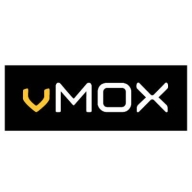

Microsoft Intune and vMOX are competitive products in the technology management space, with Intune showing greater customer satisfaction in integration capabilities while vMOX is preferred for cost optimization features.
Features: Microsoft Intune offers comprehensive mobile device management, application management, and unified endpoint management. It integrates seamlessly within Microsoft's ecosystem. vMOX is known for robust telecom expense management, providing cost analysis, optimization, and transparent reporting. The main difference lies in Intune's focus on device management versus vMOX's cost management capabilities.
Ease of Deployment and Customer Service: Microsoft Intune has a straightforward deployment process with substantial documentation and support, ideal for Microsoft environments. vMOX provides a detailed implementation strategy for telecom management with dedicated customer service for telecom operations efficiency. Intune suits large environments, while vMOX focuses on telecom efficiency.
Pricing and ROI: Microsoft Intune's pricing aligns with Microsoft's licensing models, offering favorable ROI when fully utilized in Microsoft-centric infrastructures. vMOX targets reducing telecom expenses, delivering significant ROI through telecom expenditure optimization. Intune's ROI depends on service utilization, while vMOX emphasizes immediate cost-savings.
| Product | Market Share (%) |
|---|---|
| Microsoft Intune | 31.8% |
| vMOX | 0.0% |
| Other | 68.2% |

| Company Size | Count |
|---|---|
| Small Business | 116 |
| Midsize Enterprise | 45 |
| Large Enterprise | 151 |
Microsoft Intune provides centralized management of mobile devices and applications, ensuring security, compliance, and productivity through integration with Microsoft services like Microsoft 365 and Azure Active Directory.
Organizations use Intune for managing mobile devices and applications, enhancing security and compliance across platforms. With features like single sign-on, conditional access, and zero-touch deployment via Autopilot, it facilitates efficient operations. Intune's scalability, easy enrollment, and capabilities such as remote wipe support diverse device management, offering robust data protection and efficient operation. Despite its features, improvement areas include reporting, compatibility with non-Microsoft devices, and better support for macOS and Linux devices.
What are the key features of Microsoft Intune?
What benefits should users look for in reviews?
In industries such as finance, healthcare, and education, Microsoft Intune is implemented to ensure secure and compliant device management. Companies leverage its capabilities to deploy security policies and manage both corporate-owned and BYOD environments, facilitating a unified approach to data protection and compliance.
vMOX is redefining the way medium and enterprise-sized organizations manage their mobility programs. Our trusted mobility cost optimization and lifecycle management solution combines specialized integrations, automation, and patented technology with expert strategic consulting to deliver unparalleled savings, efficiency gains, and visibility. Our holistic set of managed services, which also includes mobile help desk and device logistics, is designed to solve today’s complex administration challenges with no disruptions, provider changes and minimal customer effort. vMOX is disrupting the industry with a risk-free billing model, not your typical managed mobility services provider. For more information and to experience the difference for yourself, please visit www.vmox.com.
We monitor all Enterprise Mobility Management (EMM) reviews to prevent fraudulent reviews and keep review quality high. We do not post reviews by company employees or direct competitors. We validate each review for authenticity via cross-reference with LinkedIn, and personal follow-up with the reviewer when necessary.